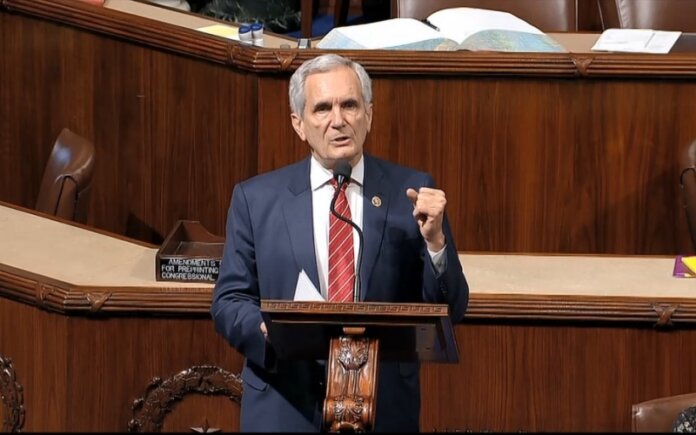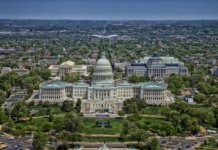U.S. Rep. Lloyd Doggett, D-Texas, and Rep. Earl Blumenauer, D-Ore., have introduced the Green Transportation Act.
The legislation directs cities and states to reduce greenhouse gas (GHG) emissions in the transportation sector. The sector represents the single largest source of carbon pollution in the U.S., which makes tracking and reducing those emissions an urgent priority in mitigating the climate crisis. Because many parts of the country are not accounting for transportation emissions, this represents an important step in working to reduce pollution by mandating the tracking of emissions and the creation of local implementation plans. The bill would help deliver President Joe Biden’s goal of reducing U.S. GHG emissions by at least 50% by 2030.
“The global climate crisis requires a bold, well-coordinated response,” says Doggett. “Our bill creates a blueprint for homegrown leadership to reduce pollution and modernize the fossilized thinking that has dominated our transportation system. This bill encourages local leaders to strengthen our roadmaps to combat climate change, while providing federal resources to support their efforts.”
The Green Transportation Act would require the Department of Transportation (DOT) to work with EPA to establish national goals and performance measures for GHG emissions reductions. Using these national performance measures as a guide, states and metropolitan planning organizations (MPOs) would then establish their own GHG reduction targets in their long-range public transit and highway planning. To support MPOs and states with this effort, the bill allows Fixing America’s Surface Transportation (FAST) Act funding to be used to develop standardized models and methodologies for measuring and monitoring GHG emissions and directs the DOT to create a clearinghouse of these best practices.
To ensure states and MPOs are meeting their emissions reduction goals, DOT will annually evaluate carbon dioxide emissions per capita on public roads in each state and issue an accompanying progress report. States that achieve the most significant reductions in carbon dioxide emissions will receive additional flexibility in how they can spend carbon pollution reduction apportionment program funding. States making the least progress in emissions reduction are required to dedicate additional federal funds to projects that will reduce emissions.
The bill was endorsed by the Natural Resources Defense Council (NRDC), Environmental Defense Fund (EDF), Union of Concerned Scientists and the Environmental and Energy Study Institute (EESI). Doggett and Blumenauer are both active members of the Safe Climate Caucus and the House Sustainable Energy and Environment Coalition, and longtime proponents of sustainable, green infrastructure.
Photo: Lloyd Doggett







